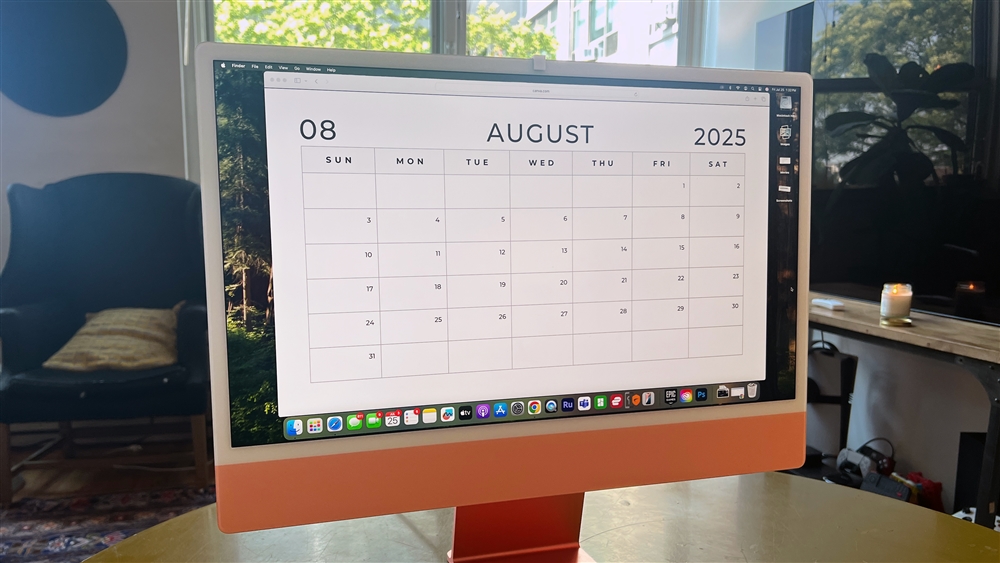This Week in AI: Rise of the In-House AI Models
For Feb. 7, 2025: Google's shopping assistant calls shops for you; More fallout from DeepSeek around models; Adobe adds AI to Acrobat.News

Image: Dall-E; Prompt: Dan Ackerman
When the Chinese artificial intelligence technology DeepSeek started becoming popular due to its low cost and powerful capabilities, many tech watchers and investors believed it could be an indication that massive companies like OpenAI, Microsoft, and Google might not need to build large, expensive datacenters to house AI. Instead, companies would be able to power an AI themselves, just like they handle websites and email today.
Now, some of the first companies are testing those waters. Figure AI, a robotics company, has announced it is moving away from OpenAI, instead choosing to build "in-house" AI models. The company didn't provide specifics, but did tell TechCrunch its "major breakthrough" would deliver “something no one has ever seen on a humanoid” in the next month.
Though this announcement likely is too fast to have been a result of DeepSeek's revelations directly, it's clear that the Chinese AI company wasn't alone developing high-power in-house AI models.
Meanwhile, engineers at Meta are reportedly excited about DeepSeek's breakthrough because it vindicates their decision to open source, or give away, Facebook's LLaMa AI a couple years ago. Now, DeepSeek is following the same model.
"The platform that will win will be the open one," Yann LeCun, Meta’s head A.I. scientist, told The New York Times in an interview. Other competitors, such as OpenAI, Apple, and Google, have so far chosen not to share the proprietary code behind their AIs, keeping them "closed source."
More "small" AI models coming
Another way DeepSeek appears to be changing the game is in what other AI companies are offering to the public. Microsoft said it's bringing OpenAI's 01 "reasoning model" to all Copilot users for free this week, effectively removing what was a $20 Copilot Pro subscription fee. Microsoft's GitHub Copilot programming tool still costs $10 per month for "unlimited access," though students and teachers can receive access for free.
OpenAI meanwhile is releasing its latest 03-mini model, its "most cost-efficient" among its latest products. OpenAI said 03-mini is particularly good at STEM, and has "reduced latency" compared to 01-mini.
"By optimizing reasoning for STEM domains while keeping costs low, we’re making high-quality AI even more accessible," OpenAI said.
DeepSeek security concerns
With all the concern politicians have expressed about TikTok and its owner ByteDance using the platform's data to help the Chinese government's intelligence gathering, it's probably no surprise eyes are turning toward Chinese-made DeepSeek as well. The US Navy, for example, has warned its members to avoid using DeepSeek "in any capacity," according to a report from CNBC, due to "potential security and ethical concerns."
Though CNBC didn't explain what those concerns are, it's worth remembering that OpenAI has accused DeepSeek of stealing its data, an accusation OpenAI itself is fighting as the New York Times claims OpenAI stole its news stories and other copyrighted works to build ChatGPT in the first place.
The US Navy isn't alone. The European Union's AI Act is also kicking into place this month, effectively allowing regulators to ban the use of AI systems they say pose an "unacceptable risk," according to TechCrunch. Though EU regulators don't appear to have commented on whether DeepSeek is a security threat, many European companies have supported the concept of a US ban of TikTok over national security concerns.
Adobe AI comes to Acrobat
You've probably heard the joke that the only guarantees in life are death and taxes, but contracts are pretty high on that list too. Adobe says it's trained AI to help "simplify working with contracts" by helping people spot differences between versions and "verify the information in these important documents -- faster and easier."
Adobe also notably promises that it "never trains the company's generative AI models on customer data and prohibits third-party LLMs from training on Adobe customer data" too.
Let Google Ask for You
Google says it's created an AI that can call businesses for you. The experimental "Ask for me" feature calls and asks many of those questions you might have like how much something costs or whether it's available, and reports back to you. Google said the feature, which Mashable notes is part of the Search Labs testing service, currently only works for calling nail salons and car mechanics for maintenance.
This isn't the first time Google's experimented with AI phone calls, or even having an AI call a business. Back in 2018, Google unveiled a feature called Duplex, which attempted to collect information about a business such as open appointment times and hours of operation. Back then, the product thrust Google into a debate about the ethics of AI and when computers should disclose they are not human beings, especially when on a phone call. Google ultimately built disclosures into its products in response.
Google has also since introduced other AI-powered phone features, including an assistant that can wait on customer service calls for you. Fortunately, some customer service tools now include a call-back function, saving even AIs from mind-numbing hold music.
Read more: AI Tools and Tips
- What is Meta AI? A Capable Chatbot That’s 100% Free
- Hands-on with ChatGPT o1-preview, OpenAI's Latest Innovation
- How to Get Started with Copilot for Microsoft 365
- Getting started with LM Studio: A Beginner's Guide
- Meet Claude, the Best AI You've Never Heard of
- How to Get NVIDIA Chat with RTX: Local AI for Everyone
Ian Sherr is a widely published journalist who's covered nearly every major tech company from Apple to Netflix, Facebook, Google, Microsoft, and more for CBS News, The Wall Street Journal, Reuters, and CNET. Aside from writing, he tinkers with tech at home, is a longtime fencer -- the kind with swords -- and began woodworking during the pandemic.











